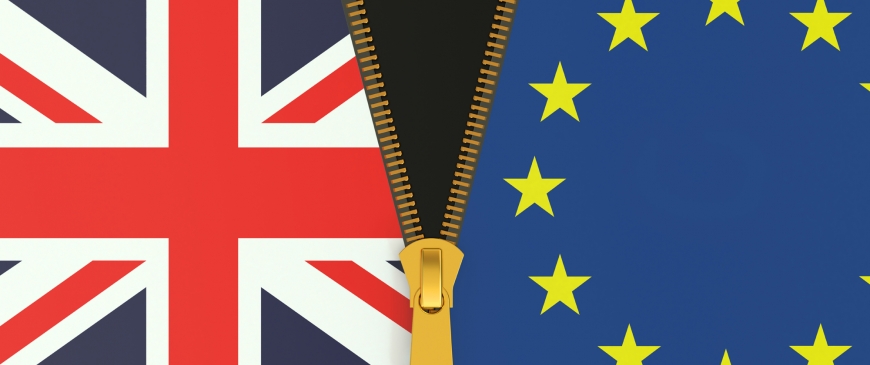
What would a post-Brexit EU be like?
If the UK voted to leave the European Union, Britain would certainly change - for better or worse, depending on your point of view. But the rest of the EU would change too.
What happens inside the EU would be just as important to Britain after Brexit as it is now. Conflicts and crises in the continent would threaten Britain’s security, as they have for centuries. Britain would still want the EU to be stable and prosperous.
Brexiteers grumble that Britain has no influence inside the EU, and claim that it would have more outside. Remainers suggest that if the UK were to leave the EU, the other members would automatically oppose British views. Both sides are probably wrong. In four decades as a member, Britain has put its stamp on many important areas of policy. It would lose some influence, but not everything it has achieved would be erased.
Britain may still be among the most economically liberal countries in the EU, but there has been growing support for liberalising markets in goods, services and labour. That would not vanish if the UK left: Eurozone countries know that they need to improve competitiveness by opening their markets. Britain has made the Capital Markets Union, which aims to establish a European single market for capital, a priority project. It would probably move ahead without Britain, though perhaps with a stronger regulator and a bigger role for Brussels than the UK would have liked. Without the backing of Britain, however, fellow free-traders in the EU might find it harder to push for increased cross-border trade in services, let alone to open the market to competition from a non-member.
One of the key parts of David Cameron’s deal with EU leaders was a level playing-field on financial regulation between Euro-ins and Euro-outs. The ins were reassured that the outs would not block further Eurozone integration, while the outs were reassured that they would not have to pay for bailouts or adopt precisely the same regulations as the ins. After Brexit, the UK would lose that protection, and the European Central Bank could try again to insist on regulatory oversight of Euro clearing houses, to the detriment of the City of London.
The single market is not the only area in which the UK has set the tone for others. Since Tony Blair was Prime Minister, British governments have pushed the EU to adopt ambitious targets for reducing CO2 emissions. Without the UK, the EU would probably make less of an effort. It might focus instead on developing the use of renewables, as Germany wishes, but the result could easily be an increase in overall emissions.
Without the UK, France would be left as the only EU member-state with a truly global foreign policy. However hostile the UK’s rhetoric has been, successive British governments have seen EU foreign policy co-operation as a force multiplier. There have often been complaints that the EU can only agree on lowest common denominator policies. But without the UK, and its predisposition to an active foreign policy, EU foreign policy would likely become even more passive. Next time a country like Russia invaded a neighbour, or a tyrant like Bashir al-Assad violently suppressed opposition, there might be fewer countries willing to put their principles above their commercial interests. After Brexit, the EU would be even less likely to take a strategic view of developments in Asia, and how the rise of China might affect Europe’s allies and partners like Japan, Australia and the United States.
The UK has always played an important role as a bridge between the EU and the US. After Brexit, the EU would be less capable, more inward-looking and even more dependent on the US for assistance in security. Brexit would encourage those in America who dismiss Europe as economically stagnant and politically dysfunctional, and think the US should concentrate on Asia instead. If Britain’s departure contributed to American frustration with and disengagement from Europe, the rest of the EU would be left to deal with a challenging security environment without one of Europe’s main military powers.
But not all of the threats to Europe can be tackled by armed forces. Fighting terrorism demands intelligence and law enforcement tools. Britain has driven some of the most important EU measures in policing and criminal justice, including counter-terrorism. After Brexit, the EU would lose access to the UK’s network of intelligence and security links; the UK would find itself without a strong, united partner in the fight against terrorism, relying instead on a patchwork of bilateral relationships with individual member-states. Britain has tried to ensure that EU data policy respects security needs as well as privacy concerns; it would have to watch from outside as the balance tilted towards protecting citizens’ privacy and away from identifying potential terrorists.
Finally, Brexit would affect the domestic politics of other member-states. Right wing populist parties are already on the rise in many countries; Brexit would embolden them to push for renegotiations or referendums. Marine Le Pen, leader of France’s extreme right-wing National Front, has said that a vote for Brexit could be like the fall of the Berlin Wall. In its historical importance, that might be true. But the end of the Cold War ushered in an era of peace and prosperity for most of Europe. If the EU fragments after Brexit, it will lead to a much darker future.
This article is based on a new publication by the CER, 'Europe after Brexit: Unleashed or undone?'
